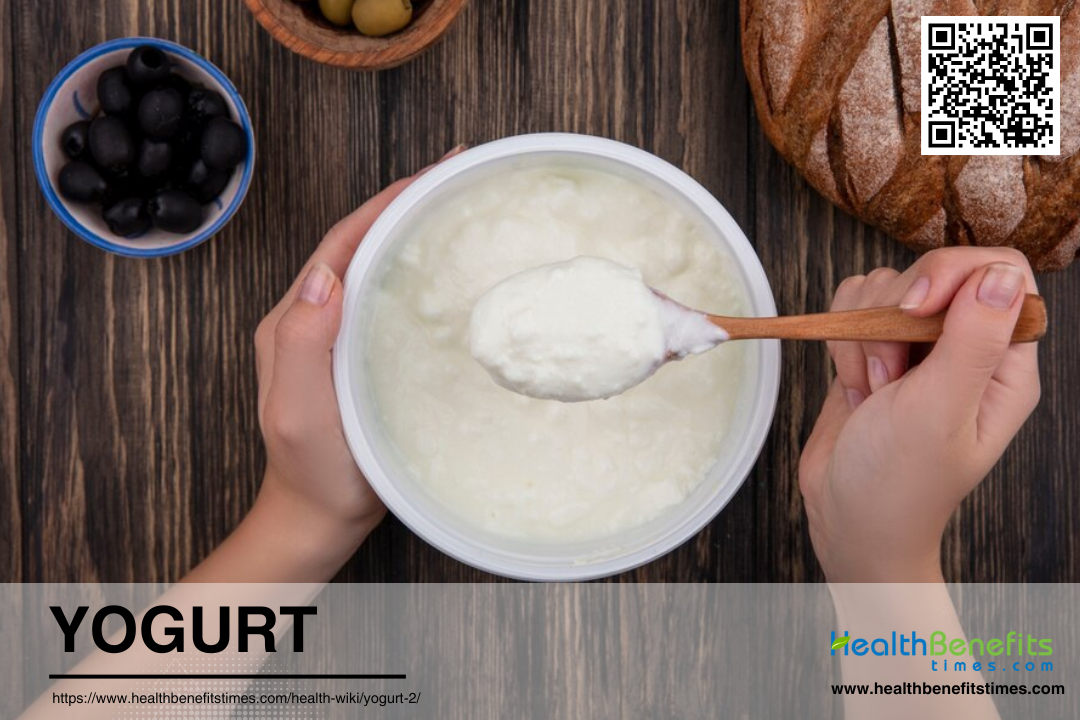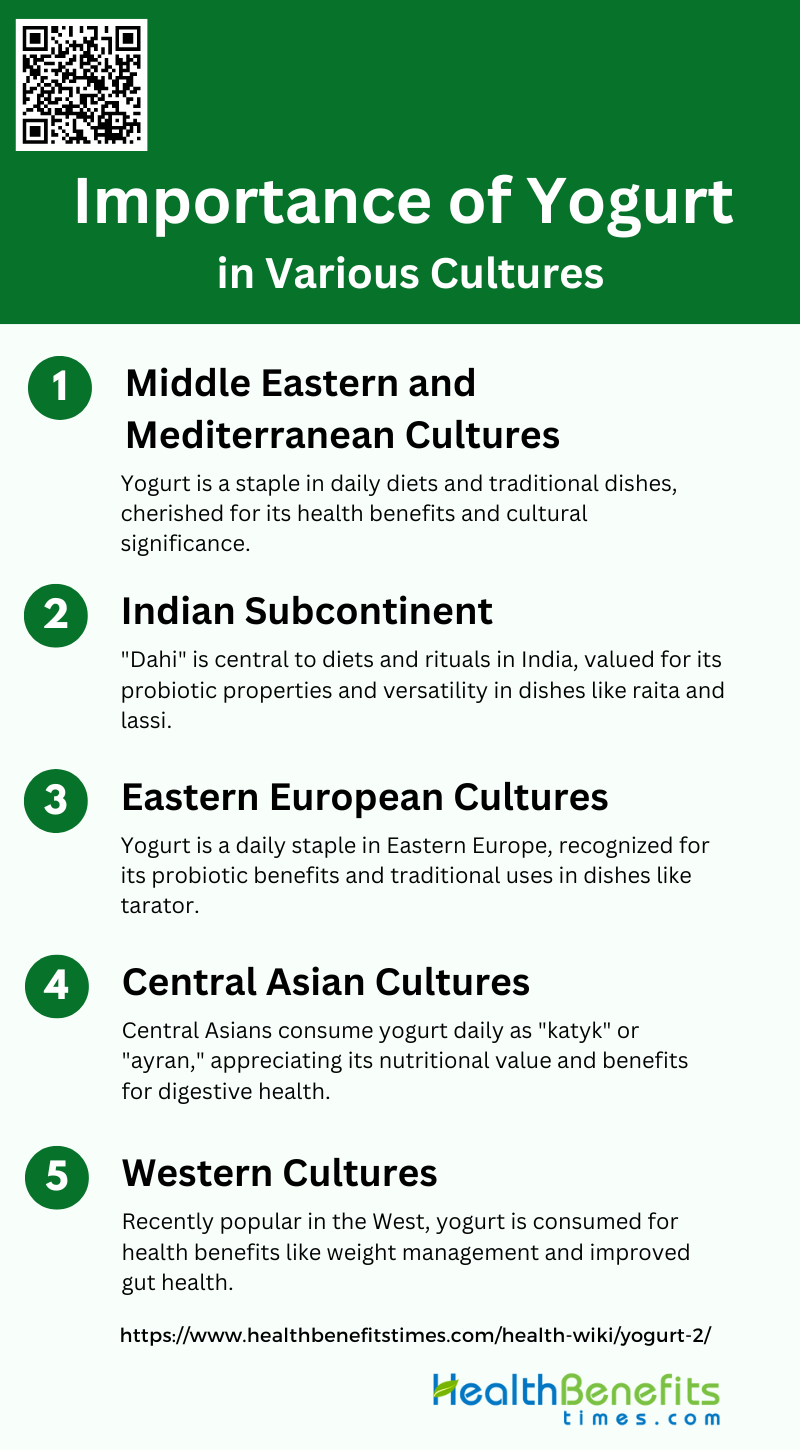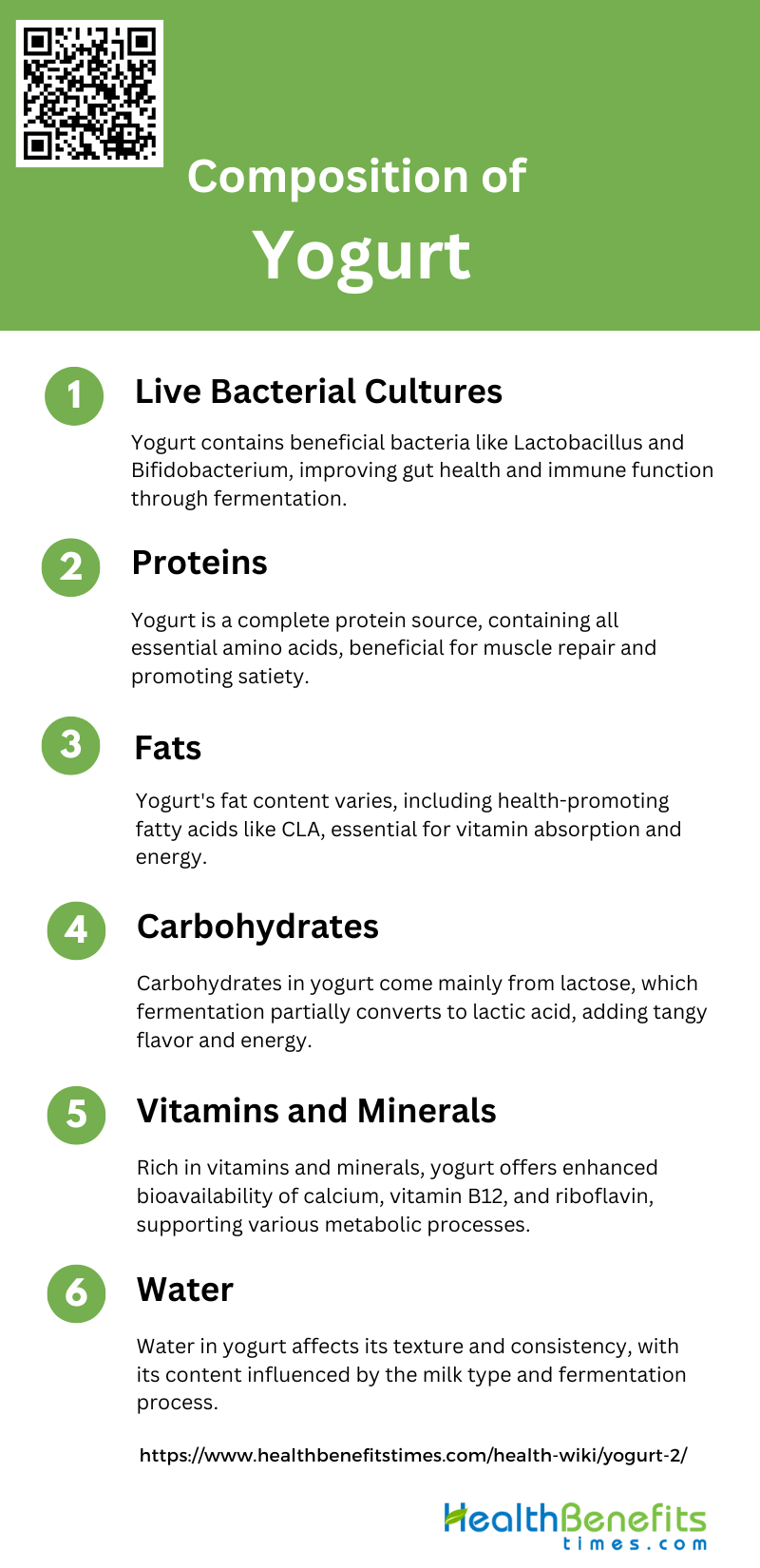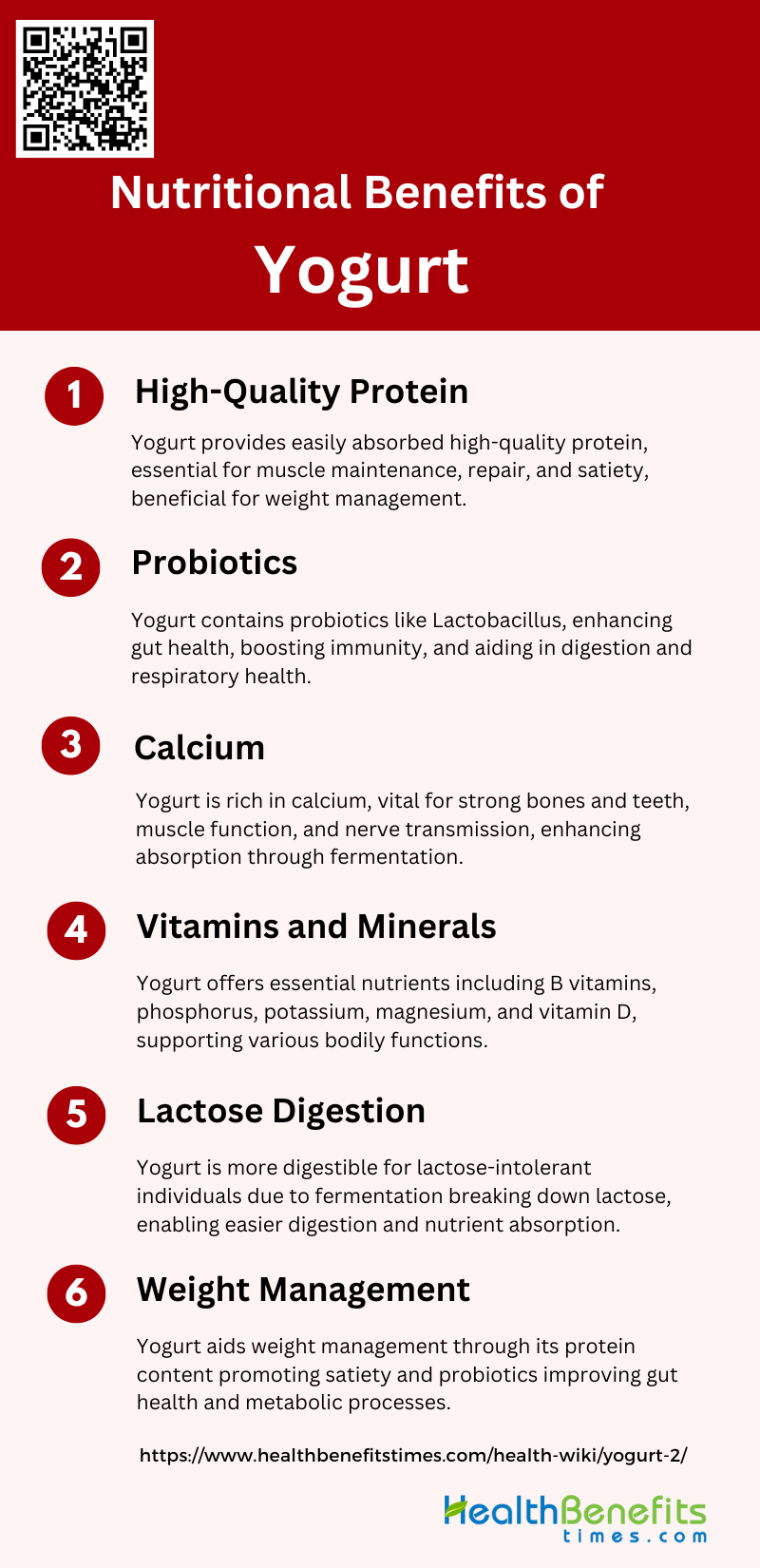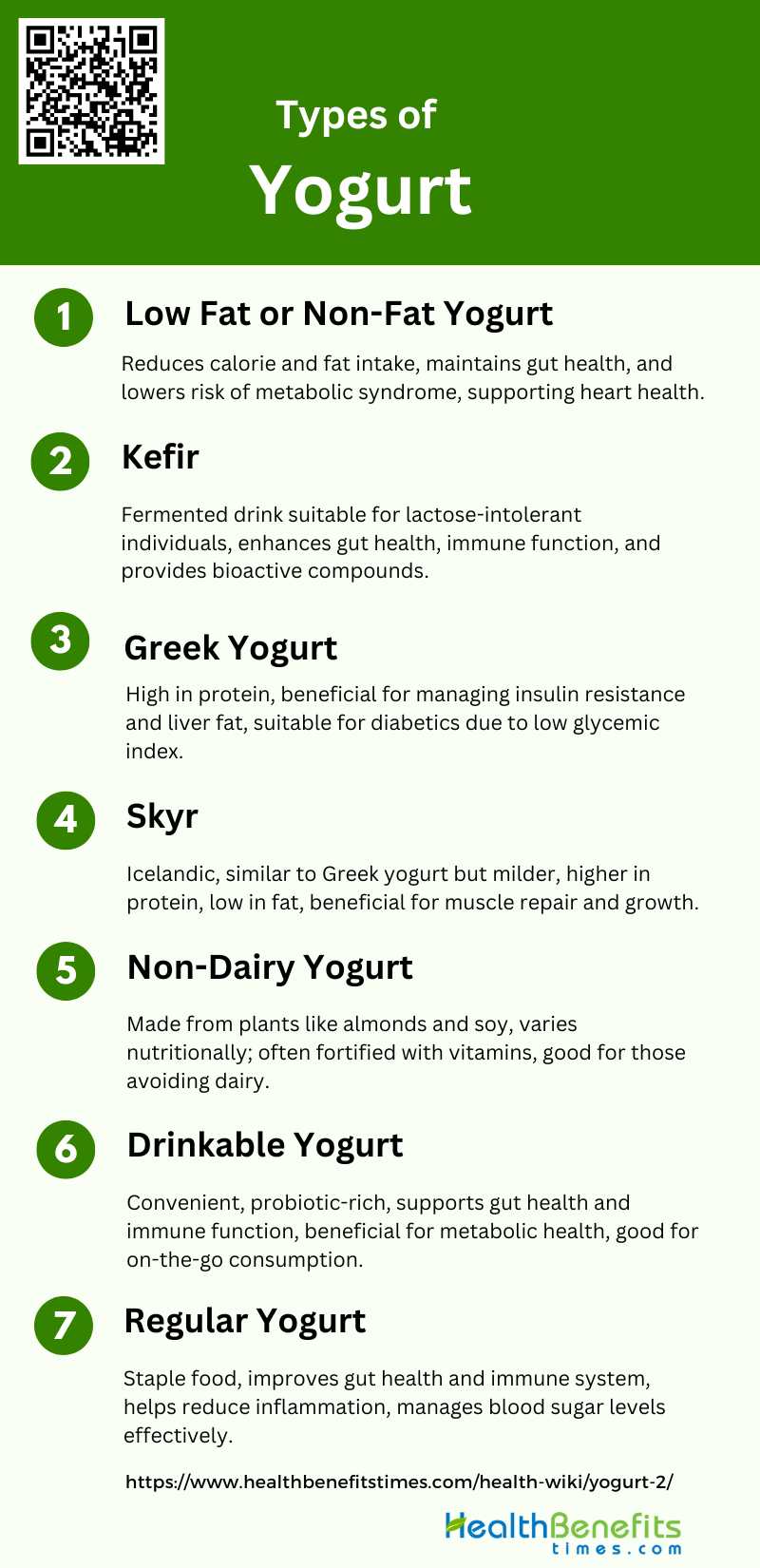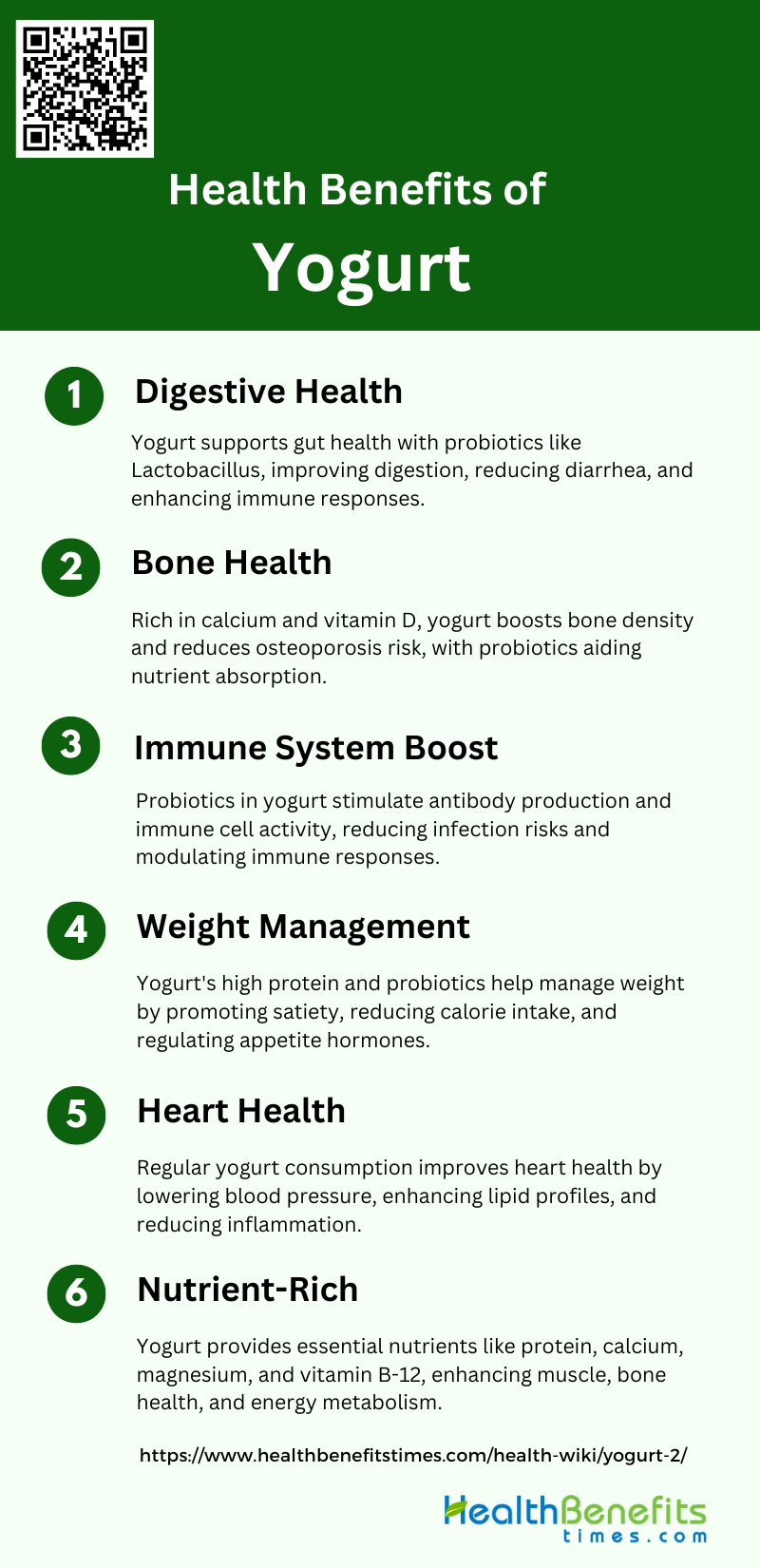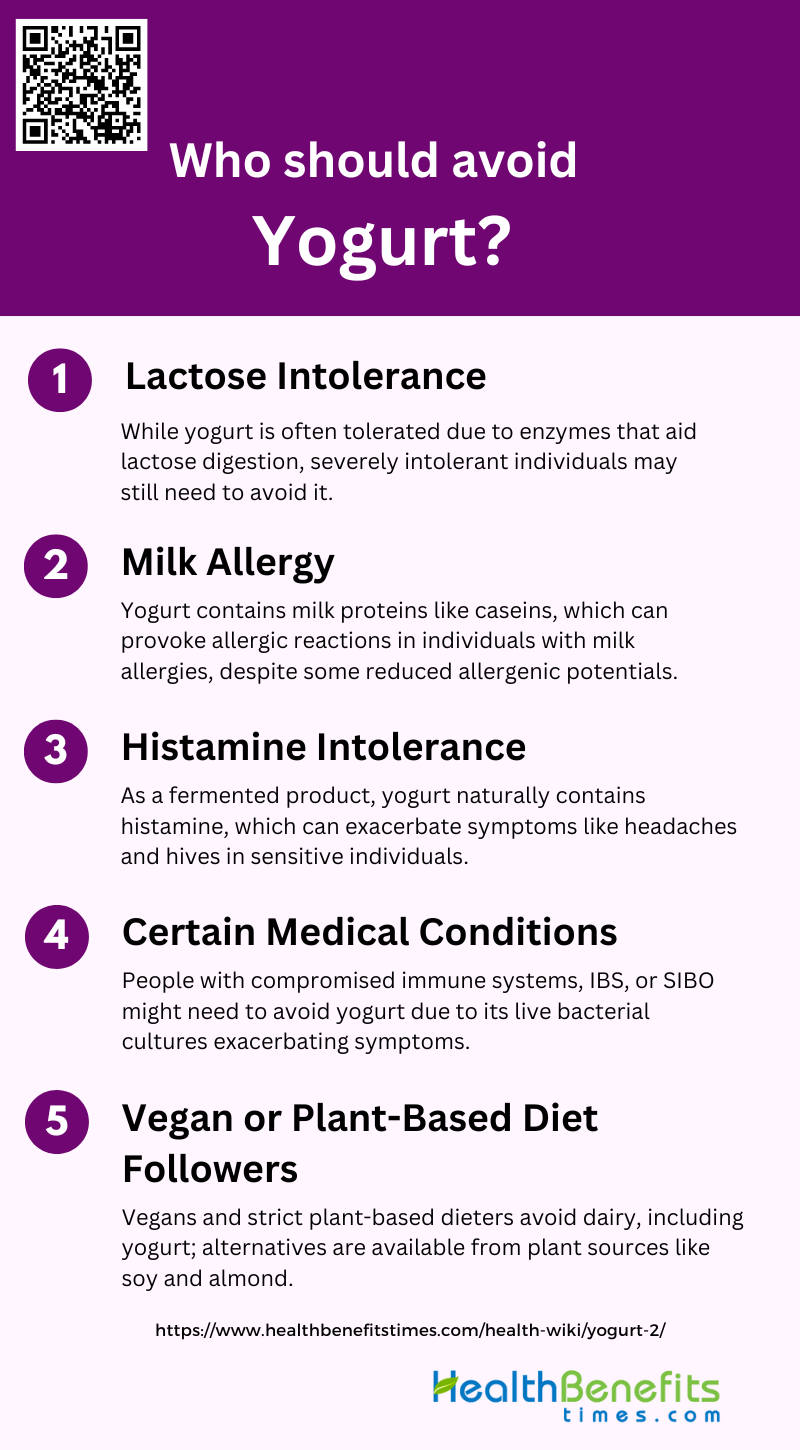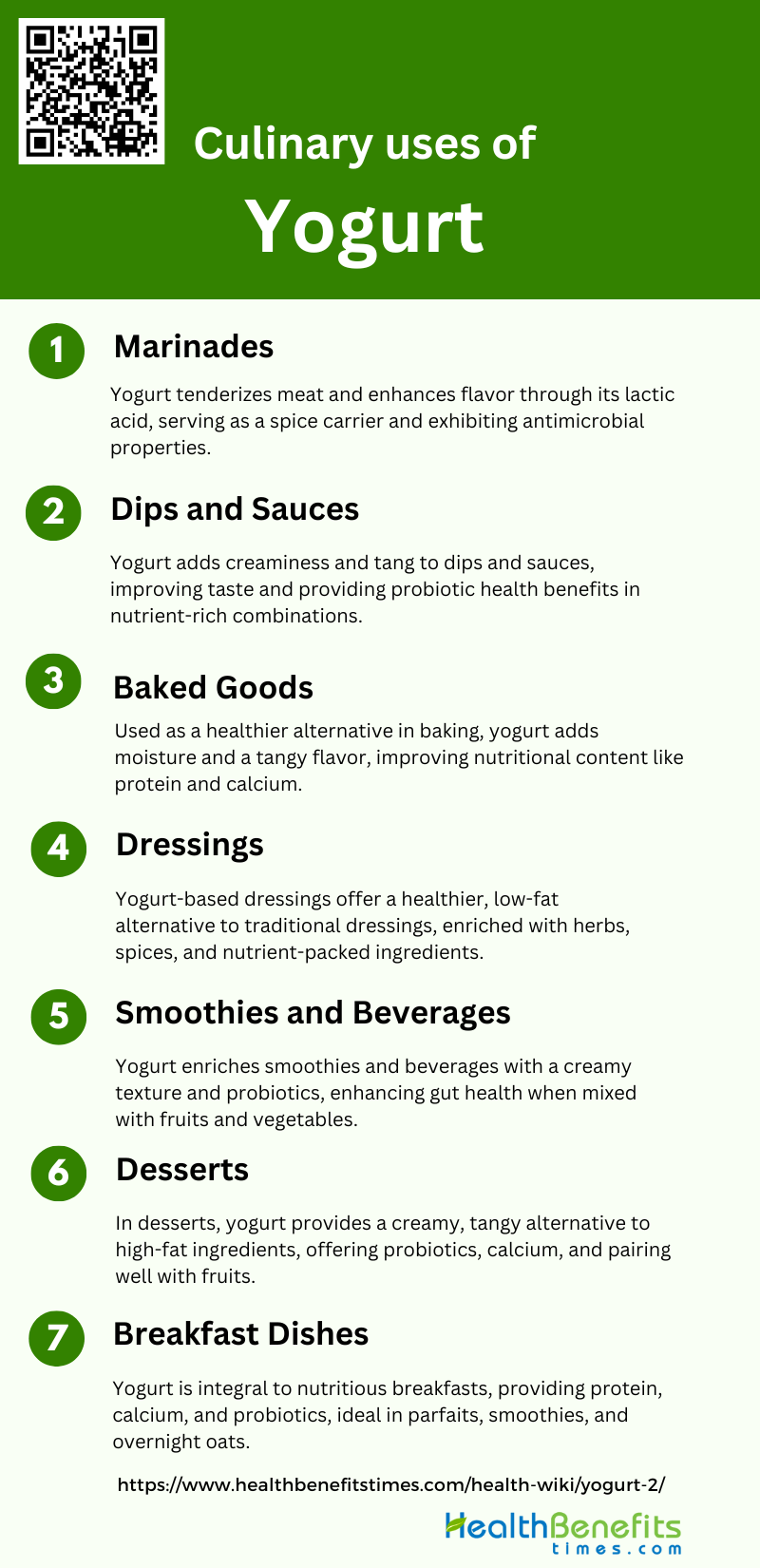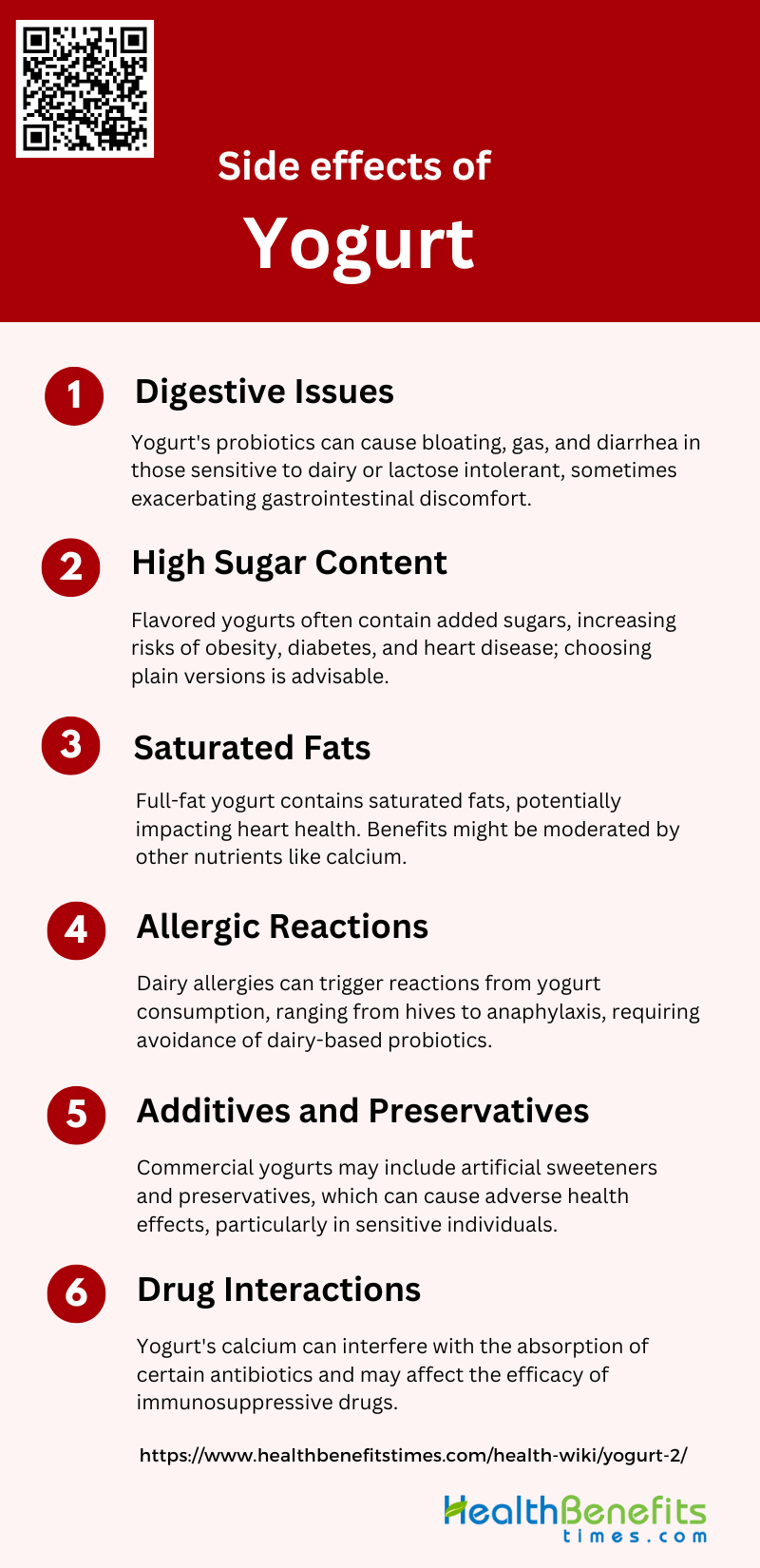Yogurt is a fermented dairy product made by adding specific bacterial cultures to milk, which causes the milk to thicken and develop a tangy flavor. The fermentation process involves the conversion of lactose, the sugar in milk, into lactic acid by bacteria such as Lactobacillus bulgaricus and Streptococcus thermophilus. This not only gives yogurt its distinctive taste but also enhances its nutritional profile by increasing the availability of certain nutrients and adding probiotics, which are beneficial for gut health. Yogurt can be made from various types of milk, including cow, sheep, and plant-based alternatives, and it is often enriched with additional ingredients like fruits, sweeteners, or proteins to cater to diverse consumer preferences and dietary needs.
How is yogurt made?
Yogurt is made through the fermentation of milk by specific bacterial cultures. Here’s a simplified process:
1. Milk Preparation: Milk is heated to about 85°C (185°F) to denature the proteins, which helps in achieving a smooth texture. It is then cooled to about 43°C (110°F).
2. Inoculation: The cooled milk is inoculated with live bacterial cultures, typically Lactobacillus bulgaricus and Streptococcus thermophilus. These bacteria ferment the lactose (milk sugar) into lactic acid.
3. Fermentation: The inoculated milk is kept at a warm temperature (around 43°C or 110°F) for several hours. During this time, the bacteria ferment the lactose, producing lactic acid, which causes the milk to thicken and develop the characteristic tangy flavor of yogurt.
4. Cooling and Storage: Once the desired consistency and flavor are achieved, the yogurt is cooled to stop the fermentation process. It is then stored in the refrigerator.
Importance of yogurt in various cultures
Yogurt holds significant cultural importance across various regions around the world. Here are a few examples:
1. Middle Eastern and Mediterranean Cultures
Yogurt has deep roots in Middle Eastern and Mediterranean cultures, where it is a staple in daily diets and traditional dishes. The word “yogurt” itself is derived from the Turkish word “yoğurmak,” meaning to thicken or curdle, reflecting its historical significance in the region. In these cultures, yogurt is often consumed plain or used as a base for savory dishes like tzatziki and labneh. Its health benefits, including improved gastrointestinal health and nutrient absorption, are well recognized. The traditional methods of yogurt preparation and consumption have been passed down through generations, emphasizing its cultural and nutritional importance.
2. Indian Subcontinent
In the Indian subcontinent, yogurt, known as “dahi,” is an integral part of the diet and is revered for its health benefits. It is commonly consumed with meals, used in cooking, and even in religious rituals. Yogurt is praised for its probiotic properties, which aid in digestion and improve gut health. The Indian cuisine features a variety of yogurt-based dishes, such as raita, lassi, and kadhi, showcasing its versatility. Additionally, yogurt is often fortified with essential nutrients, making it a valuable dietary component in this region. The long-standing tradition of yogurt consumption in India highlights its cultural and nutritional significance.
3. Eastern European Cultures
Eastern European cultures have a rich history of yogurt consumption, with Bulgaria being particularly notable for its contribution to yogurt’s popularity. The health benefits of yogurt were first scientifically attributed to lactic acid bacteria by Bulgarian medical student Stamen Grigorov in the early 20th century. In these cultures, yogurt is often consumed as a daily staple, either plain or with added fruits and honey. It is also used in traditional dishes like tarator and ayran. The probiotic properties of yogurt are highly valued, contributing to its reputation as a health-promoting food. The widespread consumption of yogurt in Eastern Europe underscores its cultural and health-related importance.
4. Central Asian Cultures
In Central Asian cultures, yogurt, often referred to as “katyk” or “ayran,” is a fundamental part of the diet. It is traditionally made from fermented milk and consumed in various forms, including as a drink or a side dish. The fermentation process not only enhances the flavor but also increases the nutritional value of the yogurt, providing essential nutrients like calcium, protein, and probiotics. Yogurt is believed to improve digestive health and boost the immune system, making it a cherished food in these regions. The traditional methods of yogurt preparation and its daily consumption reflect its cultural and nutritional significance in Central Asia.
5. Western Cultures
In Western cultures, yogurt has gained popularity over the past few decades, primarily due to its health benefits and versatility. It is often consumed as a breakfast item, snack, or dessert, with various flavors and additives to enhance its appeal. The health benefits of yogurt, such as improved weight management, reduced risk of type 2 diabetes, and enhanced gut health, have been well-documented1. Western consumers are increasingly aware of the probiotic properties of yogurt, leading to its inclusion in many health-conscious diets. The growing consumption of yogurt in Western cultures highlights its evolving role as a nutritious and health-promoting food.
Composition of Yogurt
These components include macronutrients, micronutrients, and beneficial bacteria. Below is a detailed breakdown of the key elements found in yogurt:
1. Live Bacterial Cultures
These cultures include beneficial bacteria such as Lactobacillus acidophilus, Bifidobacterium lactis, and Propionibacterium jensenii, which contribute to the probiotic properties of yogurt. These bacteria not only aid in the fermentation process but also offer health benefits by improving gut microbiota and enhancing the immune system. The viability of these cultures is maintained throughout the storage period, ensuring that consumers receive the maximum probiotic benefits.
2. Proteins
The protein content in yogurt includes all essential and non-essential amino acids, making it a complete protein source. Studies have shown that yogurt fortified with milk protein-based ingredients like sodium calcium caseinate or whey protein concentrate can improve its textural characteristics and nutritional value. The protein content in yogurt not only contributes to muscle repair and growth but also helps in maintaining satiety, which can aid in weight management.
3. Fats
The fat content in yogurt varies depending on the type of milk used and the fermentation process. Yogurt contains various fatty acids, including saturated fatty acids, phospholipids, and conjugated linoleic acid (CLA), which have been shown to have health benefits. The type of starter culture used in yogurt production can significantly affect the fatty acid profile, with some cultures increasing the content of beneficial fatty acids like CLA. These fats are essential for the absorption of fat-soluble vitamins and provide a source of energy.
4. Carbohydrates
Carbohydrates in yogurt primarily come from lactose, the natural sugar found in milk. During fermentation, lactose is partially broken down into lactic acid, which gives yogurt its characteristic tangy flavor. Additionally, yogurt can contain added sugars, especially in flavored varieties. The carbohydrate content can be influenced by the addition of ingredients like sweet potatoes or fruit juices, which can also enhance the nutritional profile by adding dietary fiber and vitamins. The presence of carbohydrates provides a quick source of energy and supports the growth of probiotic bacteria.
5. Vitamins and Minerals
Yogurt is a nutrient-dense food, rich in essential vitamins and minerals. It is an excellent source of calcium, vitamin B12, and riboflavin, among others. The fermentation process can increase the bioavailability of these nutrients, making them easier for the body to absorb. Yogurt also contains significant amounts of microelements like zinc, iron, and magnesium, which are crucial for various metabolic processes. The inclusion of ingredients like pumpkin puree and oat flour can further enhance the vitamin and mineral content of yogurt.
6. Water
Water is a major component of yogurt, contributing to its texture and consistency. The water content in yogurt can be influenced by the type of milk used and the fermentation process. For instance, the addition of whey protein concentrate can enhance the water-holding capacity of yogurt, resulting in a creamier texture. Proper water content is essential for maintaining the quality and shelf life of yogurt, as it affects the viscosity and syneresis (water separation) during storage. The balance of water and other components ensures that yogurt remains a hydrating and nutritious food option.
Nutritional Benefits of Yogurt
Yogurt is a highly nutritious food that offers a range of health benefits due to its rich composition. Here are some of the key nutritional benefits:
1. High-Quality Protein
The proteins in yogurt, such as casein and whey, are highly bioavailable, meaning they are easily absorbed and utilized by the body. This makes yogurt an excellent dietary choice for individuals looking to increase their protein intake, especially in populations with higher protein needs such as athletes and older adults. Studies have shown that the protein content in yogurt can help in reducing energy intake by promoting satiety, which can be beneficial for weight management.
2. Probiotics
Yogurt is well-known for its probiotic content, which includes beneficial bacteria such as Lactobacillus and Bifidobacterium. These probiotics play a crucial role in maintaining gut health by balancing the intestinal flora, enhancing digestion, and boosting the immune system. Regular consumption of probiotic-rich yogurt has been associated with various health benefits, including improved lactose digestion, reduced symptoms of irritable bowel syndrome, and enhanced immune responses. Probiotics in yogurt can also help in reducing the duration and incidence of respiratory infections and treating infectious diarrhea.
3. Calcium
Calcium is one of the most abundant minerals in yogurt, making it an excellent dietary source for this essential nutrient. Calcium is vital for maintaining strong bones and teeth, and it plays a significant role in muscle function, nerve transmission, and blood clotting. The bioavailability of calcium in yogurt is enhanced due to the fermentation process, which increases its absorption in the gut. Regular consumption of yogurt can contribute significantly to daily calcium intake, helping to prevent osteoporosis and other bone-related disorders.
4. Vitamins and Minerals
Yogurt is a nutrient-dense food that provides a variety of essential vitamins and minerals. It is particularly rich in B vitamins, including riboflavin (B2) and vitamin B12, which are important for energy metabolism and red blood cell formation. Yogurt also contains significant amounts of phosphorus, potassium, magnesium, and vitamin D (especially when fortified). These nutrients collectively support various bodily functions, including bone health, muscle function, and immune system performance. The diverse nutrient profile of yogurt makes it a valuable addition to a balanced diet.
5. Lactose Digestion
For individuals who are lactose intolerant, yogurt can be a more digestible alternative to milk. The fermentation process involved in yogurt production breaks down a significant portion of the lactose, making it easier to digest. Additionally, the presence of live bacterial cultures in yogurt can further aid in lactose digestion by producing lactase, the enzyme required to break down lactose. This makes yogurt a suitable dairy option for those with lactose intolerance, allowing them to enjoy the nutritional benefits of dairy without the associated digestive discomfort.
6. Weight Management
Yogurt can play a beneficial role in weight management due to its high protein content and probiotic properties. The proteins in yogurt promote satiety, reducing overall calorie intake and helping to control appetite. Probiotics in yogurt have been linked to improved gut health, which can influence body weight regulation and metabolic processes. Studies have shown that regular consumption of yogurt is associated with reduced weight gain and a lower incidence of obesity and metabolic syndrome. Incorporating yogurt into a balanced diet can thus support healthy weight management and overall metabolic health.
Types of Yogurt
Here are some of the most common types:
1. Low Fat or Non-Fat Yogurt
Low-fat and non-fat yogurts are popular choices for those looking to reduce their calorie and fat intake while still enjoying the benefits of dairy. Studies have shown that low-fat yogurt can help maintain intestinal barrier integrity and reduce inflammation. For instance, low-fat yogurt was found to prevent cytokine-induced transepithelial resistance reduction and decrease paracellular permeability in intestinal cells, indicating its role in maintaining gut health. Additionally, low-fat yogurt consumption has been associated with a reduced risk of metabolic syndrome, a cluster of conditions that increase the risk of heart disease, stroke, and diabetes. These benefits make low-fat and non-fat yogurts a valuable addition to a balanced diet.
2. Kefir
Kefir is a fermented milk drink made using a culture of bacteria and yeasts. It has been shown to offer numerous health benefits, particularly for those with lactose intolerance and osteoporosis. A study on a traditional Chilean kefir, known as “Yogurt de Pajaritos,” demonstrated its potential to degrade lactose and produce beneficial enzymes, making it suitable for lactose-intolerant individuals. Kefir also contains bioactive compounds that can improve gut health and boost the immune system. The fermentation process in kefir results in a stable microbial community that can enhance the nutritional profile of the drink, making it a functional food with various health-promoting properties.
3. Greek Yogurt
Greek yogurt is known for its thick texture and high protein content, making it a popular choice for those looking to increase their protein intake. It is produced by straining regular yogurt to remove whey, resulting in a denser product. Greek yogurt has been shown to improve insulin resistance and reduce liver fat in obese women with nonalcoholic fatty liver disease and metabolic syndrome. Its low glycemic index also makes it a suitable option for individuals with type 2 diabetes, as it can help manage blood sugar levels. The high protein content and probiotic properties of Greek yogurt contribute to its health benefits, making it a nutritious addition to the diet.
4. Skyr
Skyr is an Icelandic dairy product similar to Greek yogurt but with a milder flavor and even higher protein content. It is made by fermenting skim milk with live cultures and then straining it to achieve a thick consistency. Skyr is low in fat and rich in essential nutrients like calcium and vitamin D. Its high protein content makes it an excellent option for muscle repair and growth. Although specific studies on Skyr are limited, its nutritional profile suggests it offers similar benefits to Greek yogurt, such as improved gut health and better weight management. Skyr’s low-fat content and high nutrient density make it a valuable addition to a healthy diet.
5. Non-Dairy Yogurt
Non-dairy yogurts are made from plant-based ingredients like almonds, coconuts, oats, and soy, catering to those with dairy allergies or lactose intolerance. These alternatives can vary significantly in their nutritional content. A study analyzing various non-dairy yogurt alternatives found that while many had adequate protein levels, they often lacked sufficient fortification with essential vitamins and minerals like calcium, vitamin D, and B12. Despite these nutritional gaps, non-dairy yogurts are generally low in saturated fat and sodium, making them a healthy option for those following a plant-based diet. Consumers should look for fortified options to ensure they meet their nutritional needs.
6. Drinkable Yogurt
Drinkable yogurts are a convenient and versatile option for those looking to incorporate probiotics and other nutrients into their diet on the go. These yogurts are typically thinner in consistency and can be consumed as a beverage. Studies have shown that drinkable yogurts can improve gut health and provide similar benefits to regular yogurt, such as reducing the risk of metabolic syndrome and enhancing immune function. The ease of consumption and portability make drinkable yogurts an attractive option for busy individuals seeking a quick and nutritious snack.
7. Regular Yogurt
Regular yogurt is a staple in many diets around the world, known for its creamy texture and probiotic content. It is made by fermenting milk with live cultures, which can improve gut health and boost the immune system. Regular yogurt has been shown to reduce biomarkers of chronic inflammation and improve glucose and lipid metabolism in individuals with prediabetes. Its low glycemic index also makes it a suitable option for managing blood sugar levels. Regular yogurt’s versatility and health benefits make it a valuable addition to a balanced diet, providing essential nutrients and promoting overall well-being.
Difference between curd and yogurt
| Aspect | Curd | Yogurt |
| Preparation Method | Made by curdling milk with natural acidic substances like lemon juice. | Made by fermenting milk with specific bacterial cultures, mainly Lactobacillus bulgaricus and Streptococcus thermophilus. |
| Texture | Generally has a looser texture. | Thicker, creamier, and more consistent due to controlled fermentation |
| Flavor | Milder flavor due to less controlled fermentation. | Tangier and more standardized flavor due to specific bacterial cultures. |
| Nutritional Content | Rich in calcium, protein, and often contains more lactose. | Contains probiotics, calcium, protein, and often has less lactose, making it suitable for those with lactose intolerance. |
| Probiotic Content | Contains a variety of naturally occurring bacteria. | Higher concentration of specific probiotics due to added cultures, beneficial for gut health. |
| Culinary Uses | Used in a variety of dishes, often in Indian cuisine. | Versatile in both sweet and savory dishes, used globally in various cuisines. |
| Availability | Commonly made at home in many regions, especially in India. | Widely available in stores with various flavor options, especially in Western countries. |
| Amount of Lactose | Lower than fresh milk. | Greek Yogurt has less lactose than curd. |
Health Benefits of Yogurt
Here are some of the key health benefits:
1. Digestive Health
The probiotics found in yogurt, such as Lactobacillus and Bifidobacterium, help maintain a healthy gut microbiota, which is crucial for proper digestion and absorption of nutrients. Studies have shown that yogurt consumption can alleviate symptoms of lactose intolerance, improve gut barrier function, and reduce the incidence of infectious diarrhea. Additionally, yogurt’s probiotic content can enhance the immune response and reduce inflammation in the gut, contributing to overall gastrointestinal health.
2. Bone Health
Regular consumption of yogurt has been associated with improved bone density and a reduced risk of osteoporosis, particularly in older adults. The high calcium content in yogurt helps in the development and maintenance of strong bones, while vitamin D enhances calcium absorption. Furthermore, the presence of probiotics in yogurt may also play a role in bone health by influencing the gut microbiota and improving nutrient absorption.
3. Immune System Boost
The probiotics in yogurt, such as Lactobacillus and Bifidobacterium, have been shown to stimulate the production of antibodies and enhance the activity of immune cells. This can lead to a reduced incidence of infections, including respiratory infections and gastrointestinal diseases. Additionally, yogurt’s anti-inflammatory properties can help modulate the immune response, making it a valuable food for boosting overall immunity.
4. Weight Management
Yogurt can be an effective food for weight management due to its high protein content and probiotic properties. Studies have shown that regular yogurt consumption is associated with reduced weight gain and improved body weight maintenance. The protein in yogurt promotes satiety, reducing overall calorie intake, while the probiotics may influence gut hormones related to appetite regulation. Additionally, substituting high-calorie snacks with yogurt can help reduce the intake of obesogenic foods, contributing to better weight management.
5. Heart Health
The probiotics in yogurt can help lower blood pressure, improve lipid profiles, and reduce inflammation, all of which are important factors in maintaining cardiovascular health. Additionally, yogurt’s nutrient-dense profile, including calcium, magnesium, and bioactive peptides, can contribute to heart health by supporting vascular function and reducing the risk of metabolic syndrome.
6. Nutrient-Rich
Yogurt is a nutrient-dense food that provides a wide range of essential nutrients, including high-quality protein, calcium, magnesium, vitamin B-12, and beneficial fatty acids. These nutrients are crucial for various bodily functions, including muscle maintenance, bone health, and energy metabolism. The fermentation process of yogurt also enhances the bioavailability of these nutrients, making them easier for the body to absorb and utilize. Regular consumption of yogurt can thus contribute to a well-balanced diet and overall nutritional well-being.
Who Should Avoid Yogurt?
While yogurt is generally considered a healthy food, certain individuals may need to avoid it:
1. Lactose Intolerance
Individuals with lactose intolerance often experience digestive discomfort when consuming dairy products due to their inability to properly digest lactose, a sugar found in milk. However, yogurt is generally better tolerated by lactose-intolerant individuals because it contains beta-galactosidase (lactase) from the culture organisms, which aids in lactose digestion. Studies have shown that yogurt can be a well-tolerated source of milk for lactose-deficient children, even those with secondary lactose intolerance due to damaged intestinal mucosa from infections or other conditions. Despite this, some individuals with severe lactose intolerance may still need to avoid yogurt.
2. Milk Allergy
People with a milk allergy should avoid yogurt as it contains milk proteins that can trigger allergic reactions. Research indicates that while certain yogurt drinks can reduce the immunoreactivity of milk proteins, they are not completely free of allergens. For instance, caseins and other milk proteins remain present in yogurt, which can still provoke allergic responses in sensitive individuals. Although some yogurts have reduced allergenic potential, they are not entirely safe for those with cow’s milk allergy (CMA), and further clinical studies are needed to confirm their safety.
3. Histamine Intolerance
Histamine intolerance occurs when the body cannot effectively break down histamine, a compound found in various foods, including fermented products like yogurt. Consuming yogurt can exacerbate symptoms such as headaches, hives, and digestive issues in individuals with histamine intolerance. This is because yogurt, being a fermented product, naturally contains higher levels of histamine, which can trigger adverse reactions in sensitive individuals. Therefore, those with histamine intolerance should avoid yogurt to prevent these symptoms.
4. Certain Medical Conditions
Certain medical conditions may necessitate avoiding yogurt. For example, individuals with compromised immune systems or those undergoing specific treatments that affect gut health might need to avoid yogurt due to its live bacterial cultures. Additionally, people with gastrointestinal conditions such as irritable bowel syndrome (IBS) or small intestinal bacterial overgrowth (SIBO) may find that yogurt exacerbates their symptoms. In such cases, it is essential to consult with a healthcare provider to determine whether yogurt is appropriate for their diet.
5. Vegan or Plant-Based Diet Followers
Individuals following a vegan or strict plant-based diet avoid all animal products, including dairy. Yogurt, being a dairy product, is not suitable for vegans. Instead, they can opt for plant-based yogurt alternatives made from soy, almond, coconut, or other plant sources. These alternatives provide similar textures and flavors without the use of animal-derived ingredients, making them suitable for those adhering to vegan or plant-based dietary practices.
Culinary Uses of Yogurt
Yogurt is a versatile ingredient used in various culinary applications across different cuisines. Here are some common ways yogurt is utilized in cooking and food preparation:
1. Marinades
Yogurt-based marinades are highly effective in tenderizing meat and enhancing flavor. The lactic acid in yogurt helps break down proteins, making the meat more tender and juicy. Additionally, yogurt can act as a carrier for various spices and herbs, allowing for deeper penetration of flavors. For instance, a study demonstrated that yogurt-based marinades combined with essential oils significantly reduced harmful bacteria in camel meat, showcasing its antimicrobial properties and enhancing food safety during storage. This makes yogurt an excellent choice for marinating meats, poultry, and even vegetables.
It can be used as a base for a variety of dips, such as tzatziki, and sauces, including those for salads and grilled dishes. The addition of yogurt not only enhances the taste but also provides health benefits due to its probiotic content. Research has shown that yogurt can be combined with other ingredients like fruits and vegetables to create nutrient-dense sauces that promote digestive health and provide antioxidants. This makes yogurt-based dips and sauces both delicious and nutritious.
3. Baked Goods
In baking, yogurt can be used as a substitute for ingredients like butter, oil, or sour cream, adding moisture and a slight tang to the final product. It helps in creating a tender crumb in cakes, muffins, and bread. The fermentation process of yogurt contributes to the leavening of baked goods, resulting in a lighter texture. Studies have highlighted the nutritional benefits of incorporating yogurt into baked goods, such as increased protein and calcium content, which can enhance the overall nutritional profile of the baked items. This makes yogurt a valuable ingredient in healthier baking.
4. Dressings
They offer a creamy consistency and a tangy flavor while being lower in fat and calories. Yogurt dressings can be easily flavored with herbs, spices, and other ingredients to suit various culinary preferences. Research indicates that yogurt can be fortified with fruits and vegetables to create dressings that are rich in vitamins, minerals, and antioxidants, contributing to a balanced diet. This makes yogurt dressings a nutritious choice for salads and other dishes.
5. Smoothies and Beverages
It pairs well with fruits, vegetables, and other ingredients to create nutrient-dense drinks that are both delicious and beneficial for gut health. Studies have shown that combining yogurt with fruits can enhance the probiotic and prebiotic properties of the beverage, promoting digestive health and providing essential nutrients like calcium, protein, and vitamins. This makes yogurt-based smoothies and beverages a healthy and refreshing option.
6. Desserts
It adds a creamy texture and a tangy flavor that complements sweet ingredients. Yogurt-based desserts can be a healthier alternative to traditional high-fat, high-sugar desserts, offering nutritional benefits such as probiotics, calcium, and protein. Research has highlighted the potential of yogurt to be combined with fruits and other ingredients to create desserts that are not only tasty but also rich in antioxidants and other beneficial compounds. This makes yogurt a versatile ingredient in healthier dessert options.
7. Breakfast Dishes
Yogurt is a staple in many breakfast dishes, such as parfaits, smoothies, and overnight oats. It provides a good source of protein, calcium, and probiotics, making it a nutritious start to the day. Yogurt can be combined with fruits, nuts, and grains to create balanced and satisfying breakfast options. Studies have shown that yogurt consumption is associated with improved diet quality and nutrient intake, particularly in children and adolescents, making it an excellent choice for breakfast. This makes yogurt a valuable addition to a healthy breakfast routine.
Side effects of yogurt
While yogurt is often praised for its health benefits, it can also cause some side effects in certain individuals. These side effects can range from mild digestive issues to more severe allergic reactions. Here are some potential side effects of consuming yogurt:
1. Digestive Issues
While yogurt is often praised for its probiotic benefits, it can also cause digestive issues in some individuals. The consumption of yogurt has been associated with gastrointestinal discomfort, including bloating, gas, and diarrhea, particularly in those who are lactose intolerant or sensitive to dairy products. Studies have shown that the bacterial cultures in yogurt, such as Lactobacillus and Streptococcus species, can sometimes exacerbate symptoms of lactose intolerance and other gastrointestinal conditions. Additionally, the fermentation process can produce byproducts that may irritate the digestive tract in sensitive individuals.
2. High Sugar Content
Many commercially available yogurts contain high levels of added sugars, which can contribute to various health issues. Excessive sugar intake is linked to an increased risk of obesity, type 2 diabetes, and cardiovascular diseases. Research indicates that while yogurt itself can be a healthy addition to the diet, the high sugar content in flavored and sweetened varieties can negate these benefits and lead to adverse health outcomes. Consumers are advised to opt for plain or low-sugar versions to avoid these negative effects.
3. Saturated Fats
High intake of saturated fats is traditionally associated with an increased risk of coronary artery disease (CAD) and cardiovascular disease (CVD). However, recent studies suggest that the relationship between saturated fats and heart disease is complex and may be influenced by other dietary factors. For instance, the presence of calcium and other bioactive components in yogurt may mitigate some of the negative effects of saturated fats on blood lipids. Nonetheless, moderation is key to balancing the benefits and risks.
4. Allergic Reactions
Symptoms of a dairy allergy can range from mild to severe and may include hives, swelling, gastrointestinal distress, and anaphylaxis. It is important for individuals with known dairy allergies to avoid yogurt and seek alternative sources of probiotics and nutrients. Additionally, some people may experience allergic reactions to specific bacterial strains used in yogurt production, further complicating its consumption.
5. Additives and Preservatives
Commercially produced yogurts often contain various additives and preservatives to enhance flavor, texture, and shelf life. These additives can include artificial sweeteners, thickeners, and colorings, which may have adverse health effects. For example, some artificial sweeteners have been linked to digestive issues and metabolic disturbances. The presence of these additives can detract from the natural health benefits of yogurt and may pose risks to certain individuals, particularly those with sensitivities or allergies to these substances.
6. Drug Interactions
Yogurt can interact with certain medications, potentially affecting their efficacy. For instance, the calcium content in yogurt can interfere with the absorption of antibiotics like tetracycline and ciprofloxacin, reducing their effectiveness. Additionally, the probiotics in yogurt may interact with immunosuppressive drugs, potentially altering their impact on the immune system. It is important for individuals on medication to consult with healthcare providers about potential interactions between yogurt and their prescribed treatments.


